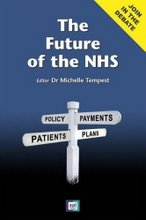Neil McKeganey, a professor of drug misuse research at the University of Glasgow wrote the following in The Guardian today:
For Simon Jenkins, the debate around the possible reclassification of ecstasy has only two sides (Who will cure ministers of illiberal headline addiction?, 7 January). On the one side there is the rational weighing of evidence that would recommend the reclassification of ecstasy from class A to class B under the Misuse of Drugs Act; and on the other there is a prime minister and a home secretary living in mortal fear of a mauling from the tabloid press were they to accept the advice of their expert committee.
The home secretary, Jenkins claims, "may be putty in the hands of her advisers on curbing civil liberty but sternly resists all the blandishments of reason in the matter of narcotics". What would it take for the home secretary to accept those blandishments? According to Jenkins it would be to accept the advice of her experts and reclassify ecstasy to class B.
"The justification for regulating drugs," he writes, "can only be the harm their use imposes on individuals and the community." A Lancet study cited by Jenkins "classified 20 mind-altering substances by personal and social harm" and "put ecstasy at the bottom, well below alcohol and nicotine". The research on which that list was based, though, was not about assessing the scientific-evidenced harm of different drugs but on a poll of addiction specialists. This was scientific opinion rather than scientific fact, and only 37% of those asked to provide their assessment chose to do so.
There is, though, a wealth of research evidence from both Britain and the US on the harms of ecstasy use that shows the adverse impact of this drug on the heart, on mood, on brain activity and on sleep pattern. It has been shown that individuals will often combine the use of ecstasy with the use of other illegal drugs. While there is some dispute as to the number of deaths directly associated with ecstasy, it is clear that use of this drug is associated with an elevated risk of death.
We should also be concerned at the speed with which ecstasy has become the UK's third most widely used illegal drug. Research has shown that those who consume the drug are often not even aware of the chemical constituents of the pills they are taking. Ecstasy may in this sense be playing a major role in normalising drug use, and may therefore be having a much more harmful impact.
Jenkins makes the point that if the home secretary does reject the advice from the Advisory Council on the Misuse of Drugs, this "would render the committee largely pointless". Surely those receiving the advice should retain the right to make up their mind as to whether or not to accept it. A second rejection of the ACMD's advice may not make the committee pointless, but it may lead to a different question: why is the ACMD preoccupying itself with the matter of where drugs are placed when there are surely many more urgent questions on how we tackle our developing drug problem?





5 comments:
Thanks for posting this Michelle - I missed the prof had written something!
Sarah
interesting!
Hey, how are you doing?
Hey, how are you doing?
Why do people take drugs?
I do like a beer, but loath to put something into my body that si srtonger than that..
Post a Comment